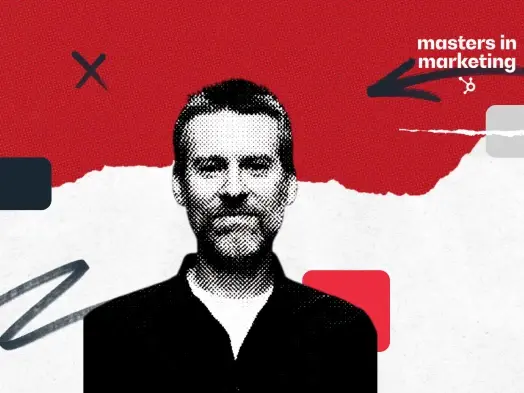Let’s take a second to commiserate, entrepreneurs.
Google is sending the entire planet to Reddit; your favourite social platforms are getting purchased, banned, or deserted; and your rigorously crafted e-mail simply bought pushed to a brand new class behind the inbox. Oh, and have you ever heard of this little factor referred to as AI that nobody is speaking about?
However right this moment’s grasp isn’t any stranger to seismic modifications in media. He’s been doing this since earlier than the dot-com bubble. And he’s bought a message it’s worthwhile to hear to outlive this one: Cease peeing within the pool.
 Brian Morrissey
Brian Morrissey
Founder, The Rebooting; Former Editor-in-Chief, Digiday
- Declare to fame: Brian’s been protecting digital media and advertising lengthy sufficient to recollect when Pets.com was a factor.
Lesson 1: Cease peeing within the pool.
When each digital advertising channel is in a state of change, all the normal playbooks are out the window — however Brian Morrissey sees this as extra of a correction than a disaster.
“Each enterprise bought used to distribution being a commodity that you can simply buy off the shelf,” he says. For years, you can pay for a virtually assured viewers on nearly any channel. “However that is opposite to how advertising typically has labored… endlessly.”
Morrissey factors out that the rise of efficiency advertising led (maybe inevitably) to an period of progress hacks. A era of entrepreneurs looking for the one bizarre trick to go viral.
“Present me the incentives, I’ll present you the result. And the incentives have been about amount, not high quality.”
The result’s that “there’s been a ton of mid-level to low-level content material pumped out. And with AI, that’s going to grow to be untenable. You may scale low-level content material to infinity. It’s peeing within the pool. Everybody has to get out.”
To Morrissey, meaning the Progress Hack Period is coming to a detailed, and he isn’t mourning.
“True advertising isn’t just in search of distribution seams earlier than they shut,” he says. “This shift goes to place an emphasis on having a very nice product, and it’s going to rely far more on phrase of mouth. You’re going to want to earn distribution.”
In different phrases, we’re again to the fundamentals. Advertising and marketing 101.

Lesson 2: Preserve what works. However construct for the longer term.
Now, Morrissey isn’t saying distribution is or shall be unimportant — and abandoning efficient channels could be a pricey mistake — however he does advocate taking a protracted view of selling.
“It doesn’t imply all that stuff goes away,” he says. “However it in all probability stands to purpose that, for instance, entrepreneurs ought to plan for website positioning to proceed to go down.”
And the irony of what I’m about to say isn’t misplaced on me, however… take note of what you’re seeing, not simply what the consultants are saying. Particularly when these consultants are additionally the sellers.
“There’s this unusual factor the place Google comes out and says ‘We’re sending simply as a lot visitors to everybody,’ however each writer I speak to is seeing approach much less visitors.”
As these distribution seams shift, Morrissey predicts that most entrepreneurs will merely proceed to leap from tactic to tactic. “Oh, e-mail is flooded? We’re going to begin texting individuals,” he grins.
However meaning there’s an enormous benefit for individuals who begin to consider what they’re working in direction of.
“It’s about persevering with to attempt to win on the strategies you’ve been counting on, but additionally constructing what the longer term appears to be like like in 5 years.”

Lesson 3: Folks belief individuals, not establishments.
“One of many huge shifts we’re seeing proper now’s from establishments to people,” Morrissey says. “Folks belief individuals.”
Suppose of the present rise of microinfluencers, govt social presences, and lo-fi advertising.
“I believe it’s a little bit overwrought,” he confesses. “However I believe the path of journey is fairly clear: People can have leverage within the market over establishments. I don’t anticipate institutional belief to bounce again rapidly.”
In sensible phrases, meaning highlighting the humanity behind your model. Take a scroll by means of any HubSpot weblog or e-mail and see that we not use the “royal we.” Three years in the past, I’d have written this as HubSpot. Now I get to write down it as Curt, a human being who occurs to be an worker of HubSpot. (Good to fulfill you!)
However Morrissey cautions that it’s worthwhile to have reasonable expectations right here.
“There’s leverage in character, however don’t anticipate to create one other Sam Parr,” he says, speaking concerning the creator of The Hustle. Sticking with that instance, he factors out that HubSpot didn’t create Sam Parr — it simply purchased his model.
“The rationale individuals like Sam have such enduring affect is as a result of it’s natural.” Creating an genuine, natural character is uncommon and troublesome — and that’s precisely why it’s beneficial. “I don’t suppose Sam was created in a advertising lab.”
Lingering Questions
As we speak’s Query
“What’s one advertising perception you held 5 years in the past that you just’ve fully modified your thoughts about?” – Jay Schwedelson, founding father of SubjectLine.com and GURU Media Hub
As we speak’s Reply
Morrissey says: “That in-person occasions would grow to be much less vital. 100% fallacious. In-person occasions are extra vital than ever.
People are social animals and can all the time congregate. It doesn’t matter what comes with AI, I don’t imagine the human species will throw within the towel on congregation.”
Subsequent Week’s Query
Morrissey asks: “Will website positioning be out of date in 3-5 years?”

